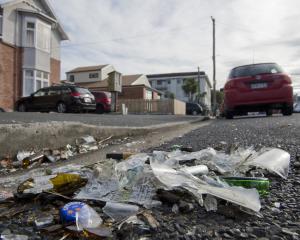
Bottled water is perceived as clean and free of contaminants compared with tap water, but University of Otago (Wellington) Department of Public Health senior research fellow Dr Tim Chambers said a study of 10 popular still water brands found all of them had low nitrate levels.
There was growing epidemiological evidence linking nitrate contamination to adverse health outcomes.
These included adverse birth outcomes and several cancers.
"Health concerns may drive consumers towards bottled water.
"However, nitrate levels in bottled water are not readily available."
While the researchers were pleased the contamination results were low, they were concerned about how hard it was to obtain information about the quality of bottled water.
Dr Chambers said bottled water companies were required to test for key contaminants to ensure their water complied with national drinking water standards.
However, they were not required to publicly disclose that information, which was important for consumers to make informed decisions and for public health surveillance of water quality, he said.
"It is possible that concentrations of some contaminants could be higher than tap water or above levels linked with adverse health outcomes.
"For example, international studies have observed associations between nitrate and adverse health outcomes at levels far below the current drinking water standard.
"We believe water quality results need to be publicly assessable.
"First, by introducing reporting of water quality for some key determinants on the product label as done in some European countries.
"Second, publication of the full suite of chemical testing results online, as two companies in this research already practise," Dr Chambers said.
A change to the Food Act to introduce mandatory reporting requirements would ensure the entire industry complied with best practice.
This information would potentially be even more important in coming years, he said.
"There has been a rapid agricultural intensification in some of the areas our major bottled water companies operate.
"While it is reassuring to see low levels of nitrate in these products, it is possible the high level of leaching could threaten some of these supplies in the future."












